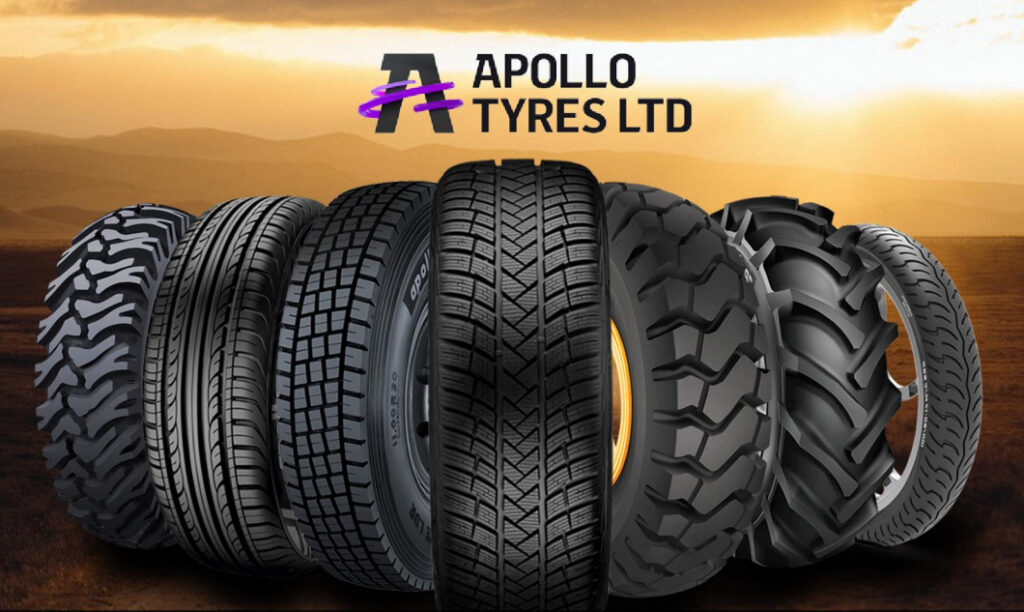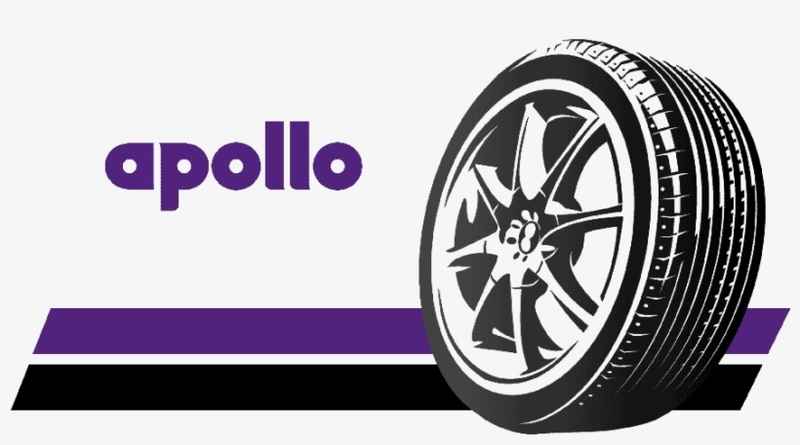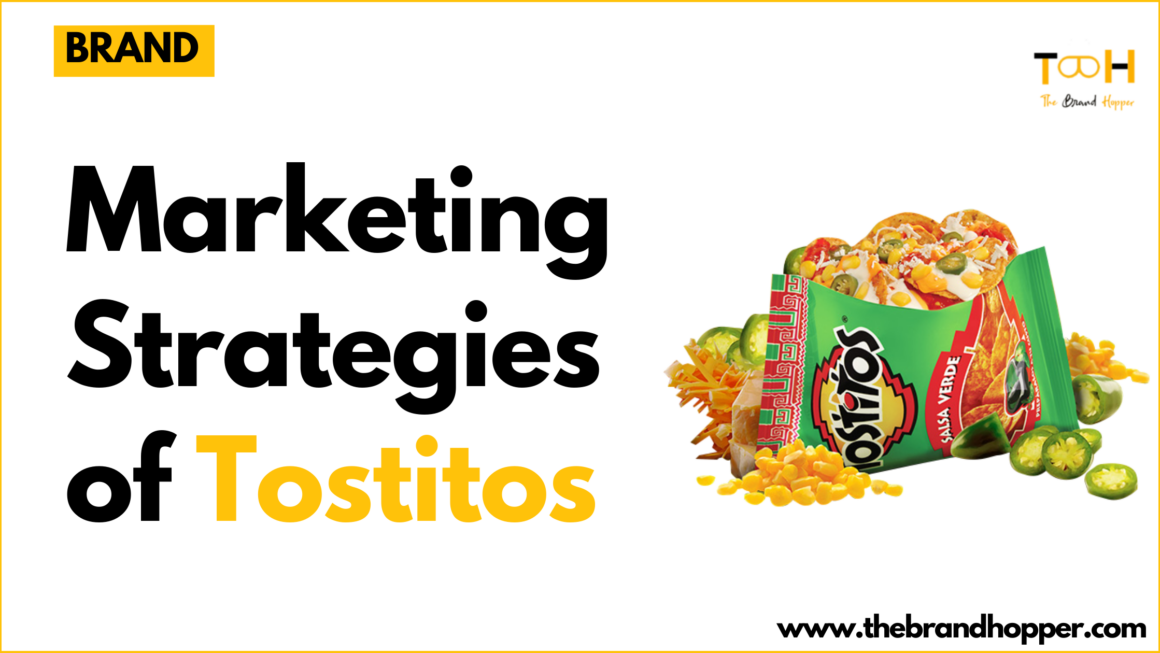Apollo Tyres Limited, located in Gurugram, Haryana, is an Indian multinational tyre manufacturing company. It was founded in 1972, and the company’s first plant was opened in Perambra, Kerala (India). In India, the company now has five manufacturing facilities, one in the Netherlands, and one in Hungary. In India, it has a network of approximately 5,000 dealerships, with over 2,500 of them being exclusive stores.
India accounts for 69 percent of the company’s sales, while Europe accounts for 26% and other regions for 5%. In March 2016, Apollo announced its contract manufacturing foray into the two-wheeler tyre segment. In April 2017, Hungarian Prime Minister Viktor Orban opened the company’s second factory in Europe.
In February 2021, Apollo Tyres Ltd. shares reached their highest level in nearly two years. The stock was trading at Rs 253.10, up to Rs 25.80, or 11.35 per cent, from the previous day. It hit a 52-week high of Rs 253.70. It reached an intraday high of Rs 253.70 and a low of Rs 232.25. You can see current performance here
History
Apollo Tyres Ltd. was formed as a Public Limited Company on September 28, 1972, and received a certificate of Commencement of Business on October 24, 1972. Bharat Steel Tubes, Ltd., Raunaq International Pvt. Ltd., Raunaq & Co. Pvt. Ltd., Raunaq Singh, Mathew T. Marattukalam, and Jacob Thomas were the company’s promoters. The firm had its initial public offering of equity shares in 1975, and its first production facility was commissioned in 1977 at Perambra Plant, Thrissur, Kerala, India, followed by its second plant in Limda, Gujarat, India, in 1991. In 1995, the business bought Premier Tyres Limited- PTL, which became its third facility in Kalamassery, Kerala, India. It opened a new facility in Chennai, Tamil Nadu, India, in 2008. A year later, in 2009, the business paid an unknown price for the acquisition of the Netherlands-based tyre manufacturer Vredestein Banden B.V. (VBBV).
In India, the firm focused on truck tyre manufacture and launched its first truck tyre, Rajdhani. The company grew its operations throughout India, and in 1996, it expanded its activities outside of India by purchasing Dunlop’s Africa assets. In 2013, it sold the Dunlop brand in Africa, as well as the majority of its South African operations, to Sumitomo Rubber Industries of Japan. It established its Global R&D Centre, Europe in Enschede, the Netherlands, the same year.
Apollo Tyres paid €45.6 million for Germany’s Reifencom tyre wholesaler in 2015. It relocated its corporate office for Europe to Amsterdam from Enschede, the Netherlands, and a few months later created a Global R&D Centre, Asia in Chennai, India.
In 2016, the firm signed a Memorandum of Understanding with the Government of Andhra Pradesh to establish a new facility in the state. It opened a facility in Hungary in 2017. N Chandrababu Naidu, the Chief Minister of Andhra Pradesh, lay the foundation stone for Apollo Tyres’ 1,800-crore tyre facility in Andhra Pradesh on January 9, 2018. The facility will be built on a 200-acre plot of land in Chinnapanduru village, near Sri City in Chittoor district, and would make passenger car radial (PCR) tyres with an initial capacity of 55 lakh (5.5 million) tyres per year, serving both local and foreign markets.
Brands
Apollo Tyres was founded in 1972 as a single-brand company. Several brands joined or were born into the fold of the organisation over the years as it evolved and expanded its impact across continents. While the company’s primary brands are Apollo and Vredestein, it also owns two smaller and regionally focused brands, Kaizen and Regal.
Brands, Apollo, and Vredestein manufacture tyres for passenger, commercial, and off-road vehicles. Regal and Kaizen are brands that specialise in truck and bus tyres.
Each brand in the firm has its own distinct visual language and is tailored to a specific client demand. This strategy has allowed Apollo Tyres to supply a diverse selection of products for a variety of applications across regions, resulting in a satisfied customer.

Building Brand Identity
Apollo Tyre Ltd has always been focusing on building its brand identify. Their focus on building the companies brand identity is directly linked with their vision of creating a long lasting relationship with their customers, though providing values resulting in customer delight. Brand building is very important since most customers do not understand the specifics of the product.
Few factors influencing brand identity building of Apollo:
- Product diversification is done on an extensive basis so as to suit the requirements & various climatic and natural conditions existing in the location (cross ply tyres to radial tyres).
- 2% to 3% of the companies total profit is spend on advertisement which helps them in improving their brand identity.
- Providing high endurance tyres ( second to MRF ).
- Building brand identity through reinventing, innovating and reinforcing its market leadership.
- Cutting-edge technology and competitive products to worldwide markets on the back of its brand values of quality, reliability, safety and trust.
- Brand differentiation is crucially undertaken to build Apollo as a global brand.
- Three pillars helping Apollo to create a brand identity are – international quality standards, last much longer & thus enhancing value for money and provides a smooth and quiet ride.
- Focusing on Word of mouth publicity to build brand identity since in automobile and tyre industry 90% of the vehicle owners makes their choice based on this.
- Investing in R&D to upgrade the technology as a result of which they have come up with different product bifurcation.
- Establishing Co branding relationships with automobile manufactures like Maruti.
Marketing Strategy
The marketing mix is the study of a collection of actions taken by a company to promote a brand or its products or services. It is made up of the four Ps: Product, Place, Price, and Promotion.
1. Apollo Product Strategy
Apollo tyres manufactures tyres, flaps for passenger vehicles, buses, lorries, farms, motorcycles, industrial, earthmovers, and tubes. The following are the types of tyres according to vehicle category and major category of Apollo tyre’s products:
Passenger Car: In this category, Apollo Tyres offers tyres for SUVs and vans. This covers the Radial and Crossply brands as well. Apollo tyres offers popular brands such as Amazer 4G life, Apterra AT, and Apterra HT in this category.
Buses and trucks: This category is determined by the sort of cargo being transported as well as the terrain. This covers the Radial, Cross Ply, and Kaizen brands. My Lug, XT-9 Gold, and Endurance LD are some of the most popular goods.
Farm or Agriculture: This category includes tyres for tractors, harvesters, trailer implements, and so on. Popular goods include Bhim, Powerhaul, and Krishak. They even supply tyres to the Dura Tread and Dura Tyre brands.
Motorcycles: In this area, they supply tyres for manufacturers like as Suzuki Slingshot, Pulsar, and Honda. Actizip F3 and Actizip S2 are two of their products in this category.
Industrial: In the industry division, Apollo provides tyres for various vehicle types such as backhoes, compactors, loaders, excavators, and graders. ALT 118 and AWE 713 are two items available in this category.
Earthmover:- Provides tyres for mining sector vehicles such as Loader, ADT, and RDT. AWL 822 and ATL 188 TX are the products available in this sector.
2. Apollo Tyres Price Strategy
Apollo Tyres has faced stiff competition in the tyre industry from companies such as JK, CEAT, MRF, Bridgestone, Goodyear, and others. To attract clients, Apollo employs a penetrative marketing technique by offering its goods at a cheaper price than its rival. Furthermore, not only pricing but also product and service play a crucial role in attracting clients, as Apollo’s price is quite near to that of its competitors. Even though MRF is at the top of its class, Apollo Tyres’ company is quite excellent in the industry because of the items they offer. Apollo also has strong relationships with automotive manufacturers such as Volkswagen and Mercedes-Benz, among others.
Also Read: Ferrari – The Making Of World’s Most Powerful Luxury Brand
3. Apollo Tyres Place Strategy
In India and Europe, we have a large distribution network. Apollo believes in delivering the right product at the right place at the right time. As a result, their distribution system consists of manufacturers, regional distribution centres, dealers, and a few agents. Apollo is constantly concerned with understanding the demands of its clients. The following pointers will describe Apollo’s technique for the location section:
- In 2016, there were around 4000+ retail dealers in India, of which approximately 1000+ were exclusive Apollo retail dealers, and approximately 3050+ dealer outlets in Europe.
- India has 19 state offices.
- There are five production sites in India, one in the Netherlands, and one in Hungary. There are over 150 sales and service offices across India.
- In India, there are around 17 regional distribution centres.
- A broad specialty network, such as Apollo Super Zone, Apollo Point, and so on.
4. Apollo Tyres Promotion Strategy
Apollo Tyres has established a household name in the tyre industry thanks to clever marketing and advertisements. Apollo Tyres’ advertising stress the product’s long life and durability, which appeals to buyers. The corporation employs a variety of techniques, including encouraging consumers to adopt better driving habits, segmenting clients based on lead ad mileage needs, and operating tyre loyalty programmes. The following are some excellent advertising or campaigns:
The social media campaign #RockTheRoad, which included music by DJ Hardwell, won the Global Dolphin Award at Cannes.
Advertisements relating to a renowned person’s personality or a natural trait are created to demonstrate Apollo’s longevity.
If you like this content, please subscribe to our newsletter.




